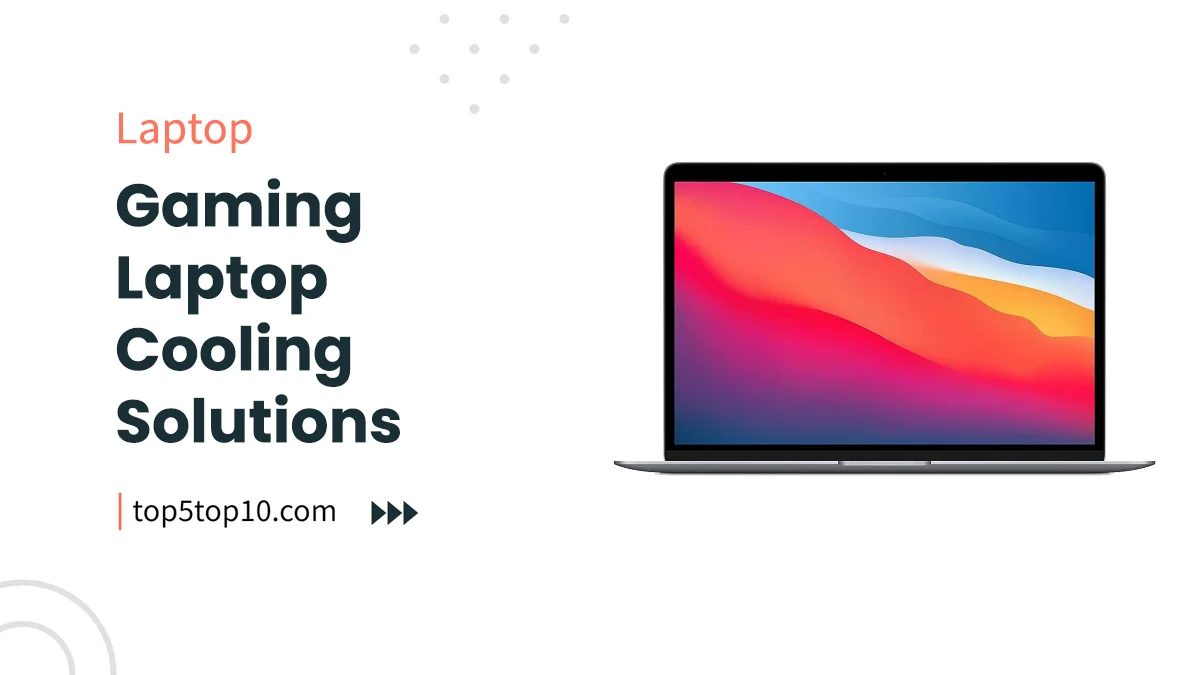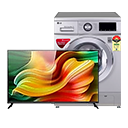
Gaming Laptop Cooling Solutions – Gaming laptops have come a long way in delivering desktop-level gaming experiences in portable form factors.
However, one of the most critical challenges they face is managing heat generated by powerful components.
In this comprehensive guide, we will delve into the world of gaming laptop cooling solutions.
From innovative cooling mechanisms to maintenance tips and future trends, we’ll explore how these laptops stay cool under pressure.
Contents
- 1. The Significance of Cooling in Gaming Laptops
- 2. Thermal Management Software
- 3. Cooling Strategies for Slim Gaming Laptops
- 4. Maintenance and Cleaning for Optimal Cooling
- 5. Overheating Troubleshooting and Solutions
- 6. Future Trends in Gaming Laptop Cooling
- Conclusion
- Additional Resources and References
- Gaming Laptop Cooling Solutions FAQs
1. The Significance of Cooling in Gaming Laptops
The importance of effective cooling in gaming laptops cannot be overstated. These laptops house high-performance CPUs and GPUs that generate substantial heat during gaming sessions.
Inadequate cooling can lead to thermal throttling, performance degradation, and even long-term hardware damage.
1.1 Types of Cooling Mechanisms
Gaming laptops employ various cooling mechanisms to combat heat. Below is a table summarizing these mechanisms:
| Cooling Mechanism | Description |
|---|---|
| Vapor chamber cooling | Efficient heat dissipation through vapor chambers |
| Heat pipes | Heat transfer using copper or aluminum pipes |
| Multiple fan setups | Enhanced airflow with multiple fans |
| Liquid cooling | Liquid coolant to dissipate heat efficiently |
1. Vapor Chamber Cooling
Vapor chamber cooling is an advanced technology that involves a sealed chamber filled with a coolant.
When heat is generated, the coolant vaporizes, spreading heat evenly across the chamber’s surface.
This mechanism ensures efficient heat dissipation and is commonly found in high-end gaming laptops.
2. Heat Pipes
Heat pipes, typically made of copper or aluminum, transfer heat away from hot components to cooler areas.
These pipes use a phase-change process to transport heat efficiently. Gaming laptops often use heat pipes in combination with other cooling methods to maintain optimal temperatures.
3. Multiple Fan Setups
Multiple fan setups involve using more than one fan to improve airflow. These fans work in tandem to expel hot air and draw in cooler air.
The enhanced airflow helps in preventing thermal throttling and maintaining stable performance.
4. Liquid Cooling
Liquid cooling systems use a liquid coolant to dissipate heat. While more common in desktop PCs, some gaming laptops now offer liquid cooling solutions.
These systems provide excellent thermal performance but may add weight and complexity to the laptop.
2. Thermal Management Software
Thermal management software plays a crucial role in optimizing cooling. Below is a table summarizing popular thermal management software features:
| Software Feature | Description |
|---|---|
| Fan control | Adjusting fan speeds for better temperature control |
| Overclocking utilities | Fine-tuning CPU and GPU performance for cooling |
| Real-time monitoring | Monitoring temperature and performance in real-time |
1. Fan Control
Fan control software allows users to adjust fan speeds manually. By increasing fan speed, users can enhance cooling during gaming sessions, reducing the risk of overheating.
2. Overclocking Utilities
Overclocking utilities let users fine-tune CPU and GPU performance. While they can boost gaming performance, they can also generate additional heat.
Careful adjustment is necessary to balance performance and temperature.
3. Real-time Monitoring
Real-time monitoring software provides essential data on temperature, CPU/GPU usage, and fan speed.
It helps users keep an eye on their laptop’s performance and take action if temperatures rise to critical levels.
3. Cooling Strategies for Slim Gaming Laptops
Slim gaming laptops face unique challenges when it comes to cooling. They must balance the need for effective cooling with maintaining a slim and portable form factor.
Below are some strategies used in slim laptop cooling:
3.1 Advanced Thermal Design
Advanced thermal design is essential for slim gaming laptops.
It involves creating efficient airflow paths within the laptop chassis while ensuring components receive adequate cooling. Below is a table summarizing common design features:
| Design Feature | Description |
|---|---|
| Heat sinks | Metal plates for dissipating heat |
| Heat spreaders | Components that distribute heat evenly |
| Ventilation systems | Channels for directing airflow |
| Thermal insulation | Materials to prevent heat transfer to other parts |
1. Heat Sinks
Heat sinks are metal plates designed to absorb and dissipate heat. They are strategically placed over hot components, such as CPUs and GPUs, to facilitate heat transfer to the surrounding air.
2. Heat Spreaders
Heat spreaders are components that help distribute heat evenly across a laptop’s internals.
They play a crucial role in preventing hot spots and maintaining consistent temperatures.
3. Ventilation Systems
Effective ventilation systems consist of channels and vents that direct airflow to hot components and expel hot air. Proper airflow management is critical for cooling efficiency.
4. Thermal Insulation
Thermal insulation materials are used to prevent heat transfer from hot components to other parts of the laptop. This helps maintain lower temperatures in critical areas.
3.2 Space-saving Cooling Components
Slim laptops require space-saving cooling components that are both efficient and compact. Here are some components commonly used:
| Cooling Component | Description |
|---|---|
| Ultra-thin fans | Slim and efficient fans for compact laptops |
| Low-profile heat sinks | Heat sinks designed to fit in tight spaces |
| Advanced thermal paste | High-performance paste for effective heat transfer |
1. Ultra-thin Fans
Ultra-thin fans are designed to be slim and efficient, making them ideal for compact laptops. They provide adequate airflow while minimizing space requirements.
2. Low-profile Heat Sinks
Low-profile heat sinks are heat-dissipating components designed to fit in tight spaces. They ensure that even slim laptops can maintain optimal temperatures.
3. Advanced Thermal Paste
Advanced thermal paste enhances heat transfer between components and heat sinks. It plays a crucial role in improving the cooling efficiency of slim laptops.
3.3 External Cooling Options
Slim gaming laptops can benefit from external cooling solutions that provide additional airflow. Below are some popular external cooling options:
| Cooling Option | Description |
|---|---|
| Laptop cooling pads | Accessories with built-in fans for extra cooling |
| Laptop cooling stands | Stands that lift the laptop for improved airflow |
1. Laptop Cooling Pads
Laptop cooling pads are accessories with built-in fans that can be placed under the laptop.
These pads help by providing extra airflow, reducing the laptop’s temperature during gaming sessions. Some even come with adjustable fan speeds for customization.
2. Laptop Cooling Stands
Laptop cooling stands are designed to lift the laptop, creating more space underneath for improved airflow.
These stands can help maintain lower temperatures and prevent overheating during extended gaming sessions.
4. Maintenance and Cleaning for Optimal Cooling
To ensure optimal cooling performance, regular maintenance and cleaning are crucial. Below is a table summarizing the steps for maintaining gaming laptop cooling systems:
| Maintenance Step | Description |
|---|---|
| Cleaning air vents | Removing dust and debris from intake and exhaust vents |
| Dusting internal components | Cleaning internal parts to prevent overheating |
| Reapplying thermal paste | Replacing old thermal paste for improved heat transfer |
1. Cleaning Air Vents
Air vents, both intake and exhaust, can accumulate dust and debris over time, restricting airflow and causing overheating.
Regularly cleaning these vents with compressed air or a soft brush can help maintain proper ventilation.
2. Dusting Internal Components
Internal components, such as fans and heat sinks, can also collect dust. Dusting these components can prevent airflow blockage and ensure efficient heat dissipation.
3. Reapplying Thermal Paste
Over time, thermal paste between components and heat sinks may degrade, reducing heat transfer efficiency.
Reapplying high-quality thermal paste can significantly improve cooling performance.
5. Overheating Troubleshooting and Solutions
Despite regular maintenance, overheating issues can still arise. Here are steps to troubleshoot overheating problems:
5.1 Common Signs of Overheating
1. Identifying Overheating Signs
Recognizing the signs of overheating is the first step in addressing the issue. Below is a table summarizing common signs:
| Overheating Sign | Description |
|---|---|
| Frequent FPS drops | Sudden performance dips during gaming |
| Laptop feels hot to touch | Excessive heat on the laptop’s surface |
| Loud fan noise | Fans running at maximum speed to cool the laptop |
| Unexpected shutdowns | Laptop shutting down due to overheating |
2. Troubleshooting Overheating Issues
To address overheating, monitor temperature using software, check for software conflicts, and reduce in-game settings. These steps can help identify and resolve overheating problems.
3. Advanced Solutions
For severe overheating issues, consider advanced solutions such as repasting the CPU and GPU with high-quality thermal paste.
Upgrading cooling components or seeking professional assistance may also be necessary.
6. Future Trends in Gaming Laptop Cooling
The world of gaming laptop cooling continues to evolve. Below are some emerging cooling technologies shaping the future:
| Cooling Technology | Description |
|---|---|
| Graphene-based cooling | Advanced thermal conductors for improved heat dissipation |
| AI-driven thermal management | Smart algorithms for real-time temperature control |
| Liquid metal cooling | High-efficiency cooling using liquid metals |
1. Graphene-based Cooling
Graphene-based cooling solutions utilize advanced thermal conductors to enhance heat dissipation.
These materials offer excellent thermal conductivity and have the potential to revolutionize cooling in gaming laptops.
2. AI-driven Thermal Management
AI-driven thermal management employs smart algorithms to adjust fan speeds and component performance in real-time.
This technology optimizes cooling based on the laptop’s workload, ensuring efficient temperature control.
3. Liquid Metal Cooling
Liquid metal cooling involves using liquid metals as thermal conductors. These substances have exceptional heat transfer properties, making them highly efficient for cooling.
While not yet widespread, this technology shows promise in future gaming laptops.
Conclusion
In the world of gaming laptops, effective cooling is the key to unlocking the full potential of high-performance components.
From vapor chamber cooling to advanced thermal design and emerging technologies like graphene-based cooling, the gaming laptop industry continues to innovate in the quest to keep laptops cool under pressure.
As a gaming laptop owner, understanding the significance of cooling, regular maintenance practices, and troubleshooting techniques will help you maintain optimal performance and extend the lifespan of your device.
With future trends promising even more efficient cooling solutions, the future of gaming laptops looks exciting and cooler than ever.
Additional Resources and References
- Provide links to tools, software, or resources for monitoring and optimizing laptop cooling.
- List references and sources used in the article for further reading.
Gaming Laptop Cooling Solutions FAQs
Why is cooling important in a gaming laptop?
Cooling is essential in a gaming laptop because gaming generates a significant amount of heat.
Without proper cooling, a laptop can overheat, leading to performance throttling, potential damage to components, and a reduced lifespan.
Efficient cooling ensures stable and optimal performance during gaming sessions.
How do gaming laptops stay cool during gameplay?
Gaming laptops use various cooling solutions to dissipate heat.
These include heat pipes, cooling fans, and heat sinks. Heat pipes transfer heat away from hot components to cooler areas, while fans expel hot air and bring in cool air.
Heat sinks are used to disperse heat. Some gaming laptops also incorporate advanced cooling technologies like vapor chambers and multiple fan systems for enhanced cooling.
What is thermal throttling, and how does cooling prevent it in gaming laptops?
Thermal throttling occurs when a component, such as the CPU or GPU, reduces its performance to lower temperatures and prevent overheating.
Proper cooling solutions in gaming laptops help maintain temperature levels within an acceptable range, minimizing or preventing thermal throttling.
This ensures consistent gaming performance.
Can I upgrade the cooling system in a gaming laptop?
Upgrading the cooling system in a gaming laptop is usually not straightforward and may void the warranty.
Cooling solutions are often designed specifically for the laptop's form factor, and components are tightly integrated. If you're experiencing thermal issues, it's best to improve cooling through external means, such as using a laptop cooling pad.
How can I maintain the cooling system in my gaming laptop?
To maintain the cooling system in your gaming laptop, regularly clean the air vents and fans to remove dust and debris that can block airflow.
Ensure your laptop is placed on a hard, flat surface to allow for proper ventilation. Avoid using your laptop on soft surfaces like beds or couches, which can obstruct cooling.
Additionally, keep the laptop's software and drivers up to date to optimize cooling performance.
|
Related Tags
Gaming laptop cooling solutions india, Best gaming laptop cooling solutions, laptop cooling pad, best cooling pad for laptop india, Gaming laptop cooling solutions amazon, best cooling pad for laptop under 1000, best cooling pad for gaming laptop india, liquid cooling pad for laptop











